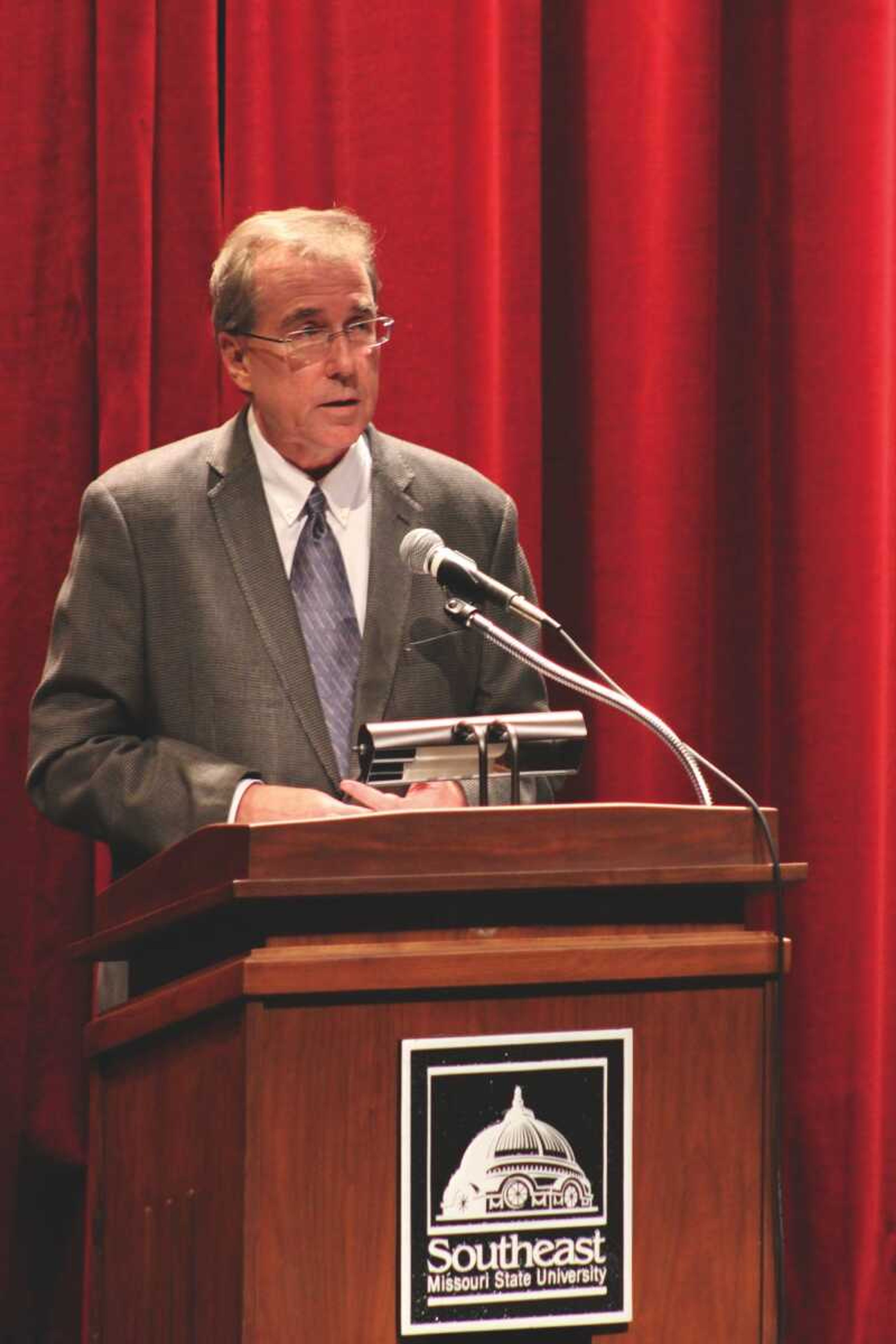Dr. Thomas Madden, an author and history professor at Saint Louis University, spoke at Southeast Missouri State University about how the Crusades are currently being used as political shorthand for religious violence and Christian distortions, while ignoring the actual history of the wars.
Madden gave the inaugural Crader Lecture in 2009, where he talked about how the story surrounding the Crusades is filled with historical myths that have been disproven by professional historians but continue to be used by terrorist organizations, politicians and media outlets.
"The dramatic gap between fact and fiction when it comes to the Crusades, I argued, was not just lamentable but dangerous, because it conjured imagined grievances for terrorists and naive solutions for Western leaders," Madden said. "A closer examination of the Crusades, I argued, would make clear how wrong the common assumptions are regarding the purpose and progress, the execution and effects, as well as the aftermath of the Crusades."
Madden argued that there are now too many agendas connected to the myths for society to willingly give up those myths. He said the myth that the crusaders were religious zealots invading a peaceful Middle East to take over their land is seen as the reason for current warfare in the Middle East. While he saw some strides in changing the Crusades' perception, Madden argued that the myths still remain, if only because they are useful in making a point.
Madden titled his lecture "Crusaders on High Horses" based on President Barack Obama's remarks given in February at the National Prayer Breakfast, after condemning recent ISIS killings.
"And lest we get on our high horse and think this is unique to some other place, remember that during the Crusades and the Inquisition people committed terrible deeds in the name of Christ," Obama said. "...We have to speak up against those who would misuse His name to justify oppression or violence or hatred with that fierce certainty. No god condones terror."
Madden argued that during the time of the Crusades and the Inquisition these events weren't seen as "perversions of Christianity." They were instead seen as a representation of good faith.
Madden said the Crusades were not wars of conversion or colonialism. They were not wars against Islam nor did they materially damage the Islamic empire. Therefore, he argued that the Crusades have no connection to the current state of the Middle East.
Madden said the Crusades were wars to protect Christian people in the Middle East from further invasion and that being a crusader was a form of penance for grave Christian sins. He added that the men who fought in the Crusades were professional warriors, and the church saw them as using the thing they did well, fighting, for "the salvation, rather than the perdition, of their souls."
Madden said the Inquisition is also misunderstood. He said it was a way for those accused of heresy, or speaking against the church and its teachings, to not be tried in a secular court where they could be executed, but to give them an opportunity to be brought back into the church and save their souls.
Once again, Madden contended that using modern world views, such as the separation of church and state, when looking at the Inquisition does not provide a full view of the reasoning and principles of the event.
"The Middle Ages were medieval," Madden said. "We should not expect people in the past to view the world and their place in it in the same way that we do today."
Madden said it is a relatively recent idea in Western culture that religion shouldn't be used to justify oppression or violence. He said this shift occurred in the 17th century when European social discipline and war shifted from a religious act to a secular act.
"Subsequently in the 18th, and in particular the 19th, century the ideology of nationalism replaced religion as the most vital form of corporate entity in the West, as it still is today," Madden said. "As a result, nationalism became a cause worth killing and dying for, while religion retreated into one's private life."
Madden said after that, religion was never again seen as an acceptable reason for violence in the West, and there are benefits to this being the modern ideal. For one, Madden said it allows us all to believe in different religions without constant war. However, he said it allowed the ideological wars that have been a huge part of modern history.
"In his prayer breakfast remarks, the president's approach to medieval Christianity relies in part on a fallacy that is known by historians as presentism," Madden said. "It's very common, so much so that we cannot even think about when we fall into it ourselves. Presentism is the practice of assessing historical events and actors by a commonly accepted modern norm."
Madden explained presentism by presenting early television shows that showed husbands spanking their wives and the couple sleeping in separate beds. While we now look at the spanking as horrible, they would have thought the same about sleeping in the same bed.
"It's a fallacy because it's inherently anachronistic," Madden said. "But it also has an enormous amount of arrogance to it. It assumes that our current norms and behavior and morality are true and eternal."






